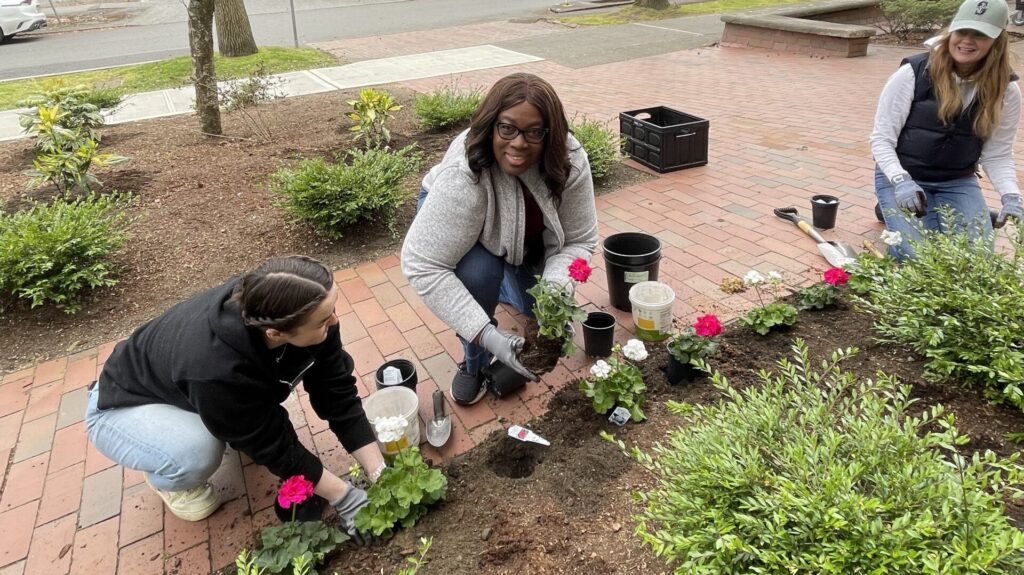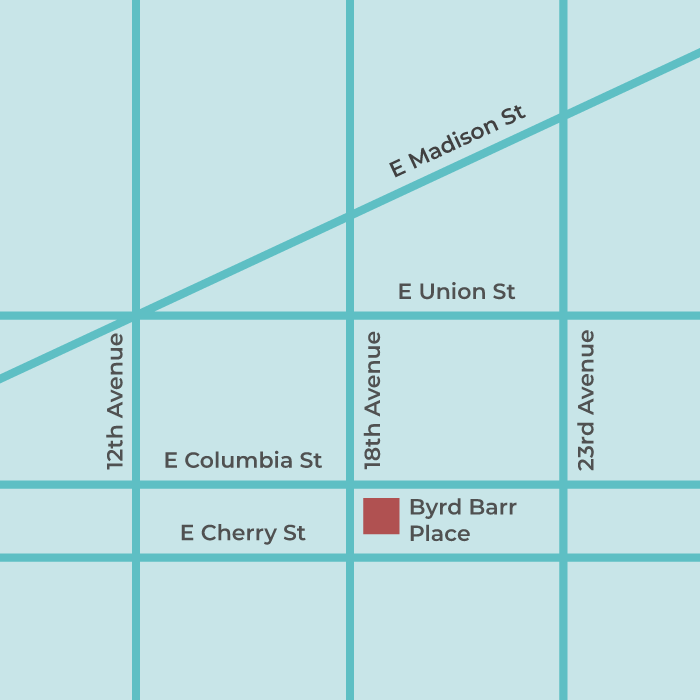As I reflect on my first year as CEO of Byrd Barr Place, my heart is full of gratitude. This year has been transformative — shaped by relationship building, passionately learning, and robustly planning for the future. Our mission, deeply rooted in the legacy of those who united in 1964 to combat poverty and racism in Seattle’s Central District, continues to drive our efforts toward an equitable future for all Washingtonians.
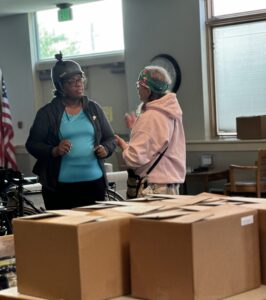
Connecting with community
Throughout the past 12 months, I’ve been honored to meet with so many incredible people who make up Byrd Barr Place’s community. I’ve been listening to and learning from clients, staff and board members, volunteers, community partners, funders, elected officials, and neighbors. And, what has struck me most are the resilience and commitment of our community.
I’ve particularly appreciated our community gatherings that have brought together a diversity of folks, from our fall kickoff with pumpkin decorating, to Ms. Roberta’s birthday celebration with cupcakes, crowns, and poppers, to our spring planting with dozens of beautiful flowers to spruce up our front yard. A recent highlight was our inaugural block party, where we had double dutch, face painting, checkers, music, dancing, food trucks, and more. And community members had a real good time!
These community connections have helped us find our center, post-pandemic. They’ve also been foundational to informing our strategic priorities moving forward, which include deepening community engagement, enhancing programs, and strengthening advocacy.
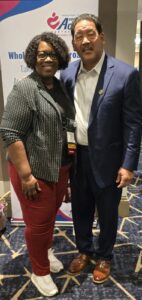
Deepening community engagement
As a grassroots organization born out of the social change energy of the 1960s, Byrd Barr Place has always been steeped in community engagement. When the organization first started, neighbors came together to fight employment discrimination, school desegregation, and open housing. This past year, Byrd Barr Place hosted community conversations, where neighbors raised priorities, such as public safety, addressing displacement, affordable housing, and youth engagement.
It’s been a collaborative 12 months, during which we’ve forged and deepened partnerships within the community. I’ve appreciated co-hosting quarterly dinners for legacy Black homeowners with CACE21 and WaNaWari, partnering the Tubman Center for Health and Freedom on a research study about our state’s insurance plans, and supporting families and organizations impacted by gun violence just blocks from our building. These partnerships have not only enriched our experiences, but will also be pivotal in shaping our programs and engagement strategies in the future.
Enhancing programs
Because of society’s biased systems and skewed governmental policies, the inequality gap continues to grow, with the top fifth of Seattle’s population receiving 53% of the income and the bottom fifth just 2%. At the same time, demand for Byrd Barr Place’s essential services — food, shelter, and energy assistance — has grown. On our heaviest days in the market, we now serve 300 households, whereas previously we served 140 households daily. We’ve also seen clients needing more than just food, but access to toiletries, baby care items, and help with budgeting.
I’m fortunate that my office is located by the exit door of our building, so clients often pop their heads in or, when there is a spare moment in my work day, I hold the door open as they exit with bags of food. I always ask “Did you find what you needed in the market?” And I usually get a positive affirmation, particularly when they have access to culturally specific foods. Many of our clients share stories of their parents and grandparents accessing our services over the past six decades, and my heart hopes to see generational cycles of poverty broken during my tenure at Byrd Barr Place.
A significant part of our success, I attribute to embracing a shared leadership model with all staff across the organization, which has fostered a culture of growth and collaboration and allowed us to respond swiftly to changing needs.
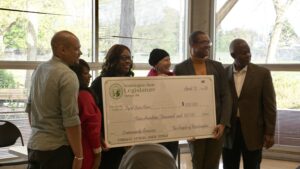
Strengthening advocacy
Since the beginning of this organization, advocacy has been a crucial part of the work, because it’s been understood that direct service alone — while essential to the survival of individuals and families — cannot undo institutional racism. And, I’ve been reminded this past year just how important it is to use our collective voices and amplify those of our clients to effect change. Byrd Barr Place staff have been at the tables where funding and policy decisions are being discussed at the city, county, state, and federal levels that directly impact our community’s access to food, housing, employment, and health equity.
I was recently joined by community leaders in the nonprofit sector and philanthropy to present our Blueprint for Change, a new framework for centering Black people in grantmaking and, together, we explored how to better serve communities whom society has marginalized. I’m also eager to launch our guaranteed basic income project, which has proven to be successful in building stability and self-sufficiency for people striving to make ends meet. A recent King County pilot found among families with children, the percentage with savings went from 0% to 42%.
As a community convener and thought leader, Byrd Barr Place will continue to facilitate these important conversations on racial equity and social justice, using our platform to advocate for systemic change.
Forging our collective future
Together, we have laid a strong foundation this year, and I am eager to continue this incredible journey alongside each of you. As we celebrate our 60th anniversary, I am confident in our collective ability to forge an equitable and prosperous future. Looking ahead, we see numerous opportunities to expand our impact. Leveraging technology, securing sustainable funding, and expanding strategic partnerships will be paramount.
Thank you for your unwavering support and for being a part of this transformative year at Byrd Barr Place.
